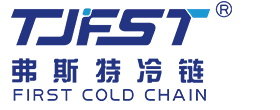As a seafood business owner, the choice of a tunnel freezer can significantly influence your operations’ efficiency, product quality, and profitability. Selecting the right equipment is not just about meeting immediate needs; it’s a strategic decision that will impact your business for years to come.
In this article, we’ll explore the crucial factors to consider when choosing a tunnel freezer, ensuring you make an informed decision that aligns with your business goals and sustainability aspirations.
Overview of the global seafood processing equipment market
The global seafood processing equipment market, valued atUS$ 2.1 billionin 2022, is projected to grow at a CAGR of 4.5% from 2023 to 2030, reaching US$ 2.9 billion by 2030. This market growth is driven by the increasing demand for processed seafood, the rising consumption of fish and seafood products, and the growing trend of aquaculture.
What is a tunnel freezer?
A tunnel freezer is a type of industrial refrigeration equipment designed to rapidly freeze large quantities of food products as they pass through an enclosed tunnel-like chamber. This equipment is commonly used in the food processing industry, particularly for freezing seafood, meat, poultry, and other perishable items.
The primary function of a tunnel freezer is to ensure uniform and efficient freezing of food products, preserving their quality, texture, and nutritional value. The freezing process typically involves the circulation of extremely cold air or the use of cryogenic gases to lower the temperature of the food products as they move through the tunnel.
Tunnel freezers are designed to handle high volumes of food products and are often equipped with advanced technology to control temperature, air flow, and freezing time. They are an essential component in the food processing industry, enabling businesses to meet the growing demand for frozen food products while maintaining high standards of food safety and quality.
Factors to consider when choosing a tunnel freezer
Production capacity and throughput
The production capacity and throughput of a tunnel freezer are crucial factors to consider when choosing the right equipment for your seafood business. The production capacity refers to the amount of seafood the freezer can process within a specific time frame, typically measured in tons per hour. The throughput, on the other hand, refers to the volume of seafood that can be efficiently frozen and packaged in a given period.
It is important to select a tunnel freezer that aligns with your business’s production needs and anticipated growth. A freezer with a higher production capacity and throughput can help you meet increased demand, reduce processing time, and optimize your operational efficiency. However, it is also essential to strike a balance between capacity and your actual production requirements to avoid over-investing in equipment that may not be fully utilized.
When assessing production capacity and throughput, consider factors such as the size of your seafood products, the desired freezing time, and the volume of seafood you expect to process on a daily or weekly basis. Additionally, evaluate the freezer’s design and features that can impact its efficiency, such as air flow systems, temperature control mechanisms, and loading/unloading capabilities.
Product quality and preservation
When selecting a tunnel freezer for your seafood business, it is crucial to consider the impact of the freezing process on the quality and preservation of your products. The primary goal of freezing seafood is to maintain its freshness, texture, and nutritional value during storage and transportation. Therefore, choosing a tunnel freezer that effectively minimizes the formation of ice crystals and prevents freezer burn is essential.
The design and technology of the tunnel freezer play a significant role in determining the quality of the frozen seafood. Factors such as the freezing temperature, air flow distribution, and freezing time can all affect the texture and appearance of the seafood. A high-quality tunnel freezer should provide consistent and uniform freezing conditions, ensuring that your seafood products retain their natural flavor, color, and texture.
Additionally, it is important to consider the freezer’s ability to handle different types of seafood, such as delicate fish fillets or shellfish with hard shells. Some tunnel freezers may be equipped with specialized features, such as adjustable air flow or gentle handling systems, to accommodate the specific needs of various seafood products.
Energy efficiency and sustainability
Energy efficiency and sustainability are increasingly important factors to consider when choosing a tunnel freezer for your seafood business. As energy costs continue to rise and environmental regulations become more stringent, selecting a freezer that minimizes energy consumption and reduces its carbon footprint can have significant long-term benefits for your business.
Look for tunnel freezers that are designed with energy-efficient components, such as high-performance insulation, variable-speed fans, and advanced control systems. These features can help reduce energy consumption and lower your operating costs. Additionally, consider freezers that are compatible with alternative energy sources, such as solar or wind power, to further enhance their sustainability.
In addition to energy efficiency, it is important to consider the environmental impact of the materials used in the construction of the tunnel freezer. Opt for freezers that are built with eco-friendly materials, such as stainless steel or recyclable plastics, to minimize waste and reduce your business’s environmental footprint.
Space and layout requirements
When selecting a tunnel freezer for your seafood business, it is important to carefully consider the space and layout requirements. The size and configuration of the freezer should be designed to fit seamlessly within your existing facility, ensuring efficient workflow and maximizing available space.
Start by assessing the dimensions of the tunnel freezer and comparing them to the available space in your facility. Consider factors such as the height, width, and length of the freezer, as well as any additional clearance space required for loading, unloading, and maintenance. It is also important to consider the layout of your facility, including the location of doors, aisles, and other equipment, to ensure that the freezer can be easily integrated into your operations.
In addition to the physical dimensions of the tunnel freezer, consider the layout and design features that can impact its functionality and efficiency. Look for freezers that are equipped with adjustable shelving, modular components, and flexible design options to accommodate different types and sizes of seafood products. These features can help optimize space utilization and provide the flexibility needed to adapt to changing production needs.
Budget and cost considerations
When choosing a tunnel freezer for your seafood business, budget and cost considerations are critical factors that can significantly impact your return on investment. While it may be tempting to opt for the lowest-priced option, it is essential to evaluate the long-term costs associated with the freezer, including its energy consumption, maintenance requirements, and potential for future upgrades.
Start by establishing a realistic budget for your tunnel freezer purchase, taking into account not only the initial purchase price but also the ongoing operational costs. Consider factors such as energy efficiency, as freezers with higher energy ratings may have a higher upfront cost but can save you money in the long run. Additionally, factor in the cost of routine maintenance, repairs, and any specialized training required for your staff to operate and maintain the freezer effectively.
It is also important to consider the potential for future upgrades and expansions when evaluating your budget. Look for tunnel freezers that offer modular design options or compatibility with advanced technologies, such as automation or remote monitoring, to ensure that your investment can be easily adapted to meet your business’s evolving needs.
Conclusion
In conclusion, selecting the right tunnel freezer for your seafood business is a decision that requires careful consideration of various factors. From production capacity and product quality to energy efficiency and cost considerations, each aspect plays a crucial role in ensuring that your investment aligns with your business goals and sustainability aspirations.

